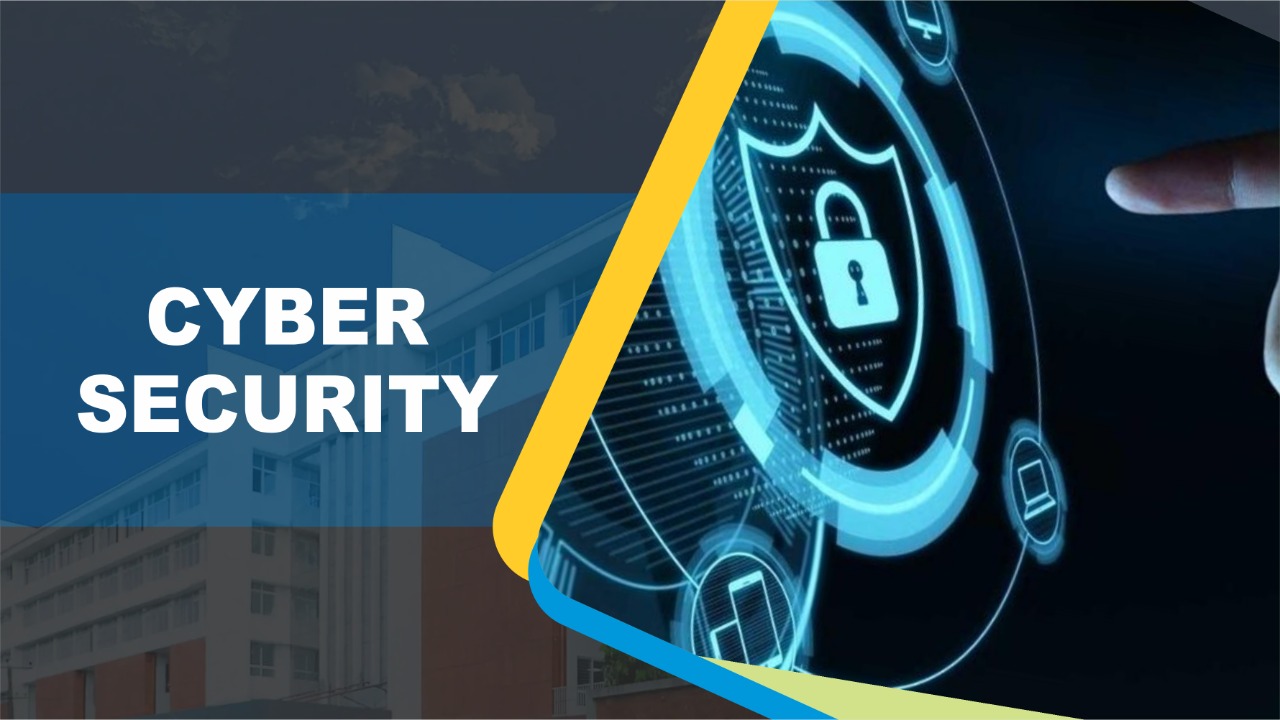What is Cyber Security?
Cyber security is one of the most popular practices of protecting computers, networks, servers, and data from digital malicious attacks.
The advent of Covid-19 has transformed the world in a big way. The Internet has emerged as the most vital source to survive in the lockdown situation. However, an exponential change occurred in cyberspace as everyone landed on the Internet for diverse needs. In the business world, to be in the market, Business enterprises that were otherwise working offline also have to come online for selling their product and services. It has intensified the culture of work from home, digital transactions have been increased and the entire communication system has been altered. Alongside, the businesses are dealing with challenges too. The major challenge is to protect sensitive data from hackers as cyberattacks have also been increased.
Cyber security issues are becoming more challenging for a business to smooth functioning in a virtual space. The year 2020 is considered the year of the Cyber Pandemic. ‘Recent Trends and cybersecurity statics’ has reported that a huge increase in hacked and breached data from sources that are increasingly common in the workplace, like mobile and IoT devices.
Organizations are considering Cyber security as an essential process for data security. Nowadays, all confidential data or sensitive information like social security numbers, credit card information, and bank account details are stored on the cloud. Hence, Cyber security importance is on the rise. It protects a business from financial damage, reputational damage, and regulatory damage. Now businesses are taking stringent actions toward Cyber security and considering it as a mandatory function in organizations. Hence, the opportunities for cyber security professionals are wide open.
Required Skills
To be successful in the Cyber security field, you must require diverse skills. These all-around skills make you a confident professional to monitor and implement security measures that protect computer systems against any potential attacks and unauthorized access.
Technology is ever-evolving, and the IT experts loaded with the latest skillset are always in demand. If you dream to build a career in one of the hottest fields, you must acquire the following skills to be an in-demand expert in the Cybersecurity field.
| Programming Skills | You should know knowledge of multiple programming languages. By learning multiple languages, you would also get to develop coding skills.Though programming knowledge is not essential for all cyber security jobs, but for some jobs it is.Having programming skills is an added advantage to advance your career as it may help you secure more job opportunities in the field of cyber security. |
| Intrusion Detection | You must be familiar and able to operate IDS (Intrusion Detection System). It is a software solution that monitors a system for policy violations or malicious act.An IDS would detect the malicious activity and report it to the administrator. |
| SIEM Management | Security Incident and Event Management (SIEM) is a security management method that collects data in real time. It analyses the security threats and identifies the related events. |
| Analytics and Intelligence | Being familiar with the basic concept of analytics and intelligence will help you learn cybersecurity analytics, which focuses on using data attribution, analysis, and aggregation to get the required information to plan out future implementations.To understand the basics of analytics, you can brush up on your knowledge of statistics. Learning statistics will provide you with a solid foundation to study the advanced concepts of cybersecurity analytics. |
| Black-Hat thinker | To secure a system thoroughly, you should think like a hacker. Anticipate an attack beforehand and get an ample amount of time for preparation and damage control. |
| Audit & Compliance | Security audit and compliance knowledge are essential to avoid fines and penalties for the organization. Cybersecurity personnel reviews the organization’s regulatory guidelines such as HIPAA, FISMA, SOX, PCI DSS, GDPR, ISO 27001 and 20000, and COBIT etc. |
| Application Security Development | Cybersecurity personnel works to improve the security of any application at SDLC (Software Development Lifecycle) level by finding vulnerabilities and fixing them before an application is deployed. |
| Mobile Device Management | Cyber security personnel closely work with the IT department to secure and deploy all the devices like smartphones, tablets, and laptops also acquire knowledge to understand data loss prevention strategies. |
| Networking and Virtualization | Networking is a crucial skill for cyber security because a weak network can make room for malicious activities to breach the same. If you have a proper understanding of network functionality and its components, you will get a good idea of network security.Virtualization is also the most important and related skill for Cyber security professionals because it helps to run tests without needing additional hardware or resources. Learning virtualization will help you create multiple virtual machines within one computer. |
Also Read: Top Engineering Colleges in India
Cyber Security Courses Eligibility
Cyber Security courses are of various types – certification, diploma, graduate degree, or postgraduation degree courses. Colleges that offer Cyber Security courses have their different admission process and eligibility criteria basis the type of course.
Below mentioned are the eligibility criteria to get admission in Undergraduate, Postgraduate, and online cybersecurity courses:
| Programmes | Eligibility |
| Undergraduate Cyber security course | Candidates must complete their 10+2 from a recognized board or university with Maths, Physics, and Chemistry as compulsory subjects and secure a minimum aggregate score of 50% in the 12th class to get admission in this course. |
| Postgraduate Cyber security course | For admission in Masters in Cyber Security, the candidate must have completed their graduation in Cyber Security with at least 50% marks scored in the academics from a recognised university/institute. |
| Online Cyber security courses | Basic understanding of the subject with knowledge of using operating system & internet and downloading and installation of software. |
Entrance Exams for Cyber security
Some colleges, universities or Govt institutions conduct the following sets of entrance examinations for admissions in Cyber security courses.
- SRMJEEE – This is a university-level computer-based (online) test that acts as a common entrance examination for all SRM Group institutes and universities located across India.
- CET – Common Entrance Test is conducted for admission in postgraduate courses. Many colleges provide admission basis the CET scores.
- JEE Main – The Joint Entrance Examination scores are considered by NITs, IIITs, universities, and institutes across India.
- JEE Advanced – This entrance examination allows admission to IITs across India.
- CUET – Calicut University Entrance Exam is conducted mainly for admission in postgraduate courses.
- CUEE – Chandigarh University Entrance Exam is conducted for admission in various undergraduate and postgraduate courses offered by the university.
- VITEEE – This is the common entrance test for admission into VIT Vellore, VIT Chennai, VIT Bhopal and VIT Andhra Pradesh.
Top Colleges offering Cybersecurity courses
- Indian Institute of Technology (IIT) – Bangalore
- Indian Institute of Information Technology and Management – Kerala Trivandrum (IIITM-K)
- Vellore Institute of Technology (VIT) – Bhopal
- Calicut University
- National Institute of Electronics and Information Technology (NIELIT), Delhi and Srinagar
- Hindustan Institute of Technology & Science (HITS) Kelambakkam, Chennai
- Brainware University, Kolkata
- NSHM Knowledge Campus, Kolkata
- Amity University, Jaipur
- SRM Valliammai Engineering College, Kanchipuram Kattankulathur, Chennai
- Hyderabad Institute of Technology and Management Medchal, Hyderabad
- WebelFujisoft Vara Centre of Excellence, Kolkata
- R. Mangalam University, Gurgaon
- Swami Vivekananda University (SV), Kolkata
- Marwadi University, Rajkot
- Sharda University, Greater Noida
- NIMAS, Kolkata
Scope & Job Opportunities
The scope in the field of Cyber security is huge as every company needs an expert who can safeguard their important data from hacking and other online threats. As per the Data Security Council of India (DSCI), about 53,000 job positions are on offer in the cybersecurity services space in India. The DSCI said this niche space is expected to have 10 lakh employees by 2025.
The job opportunities for Cyber security professionals are available in many companies like:
- Technology companies
- Security software companies
- Defense companies
- Government departments
- E-Commerce companies
- Financial organizations like banks, credit cards etc
- Insurance companies
- And many other industries
Job Roles in Cyber security
| Security Analyst | Security Administrator | Cryptanalyst |
| Security Engineer | Security Software Developer | Chief Information Security Officer |
| Security Architect | Cryptographer/Cryptologist | Security Consultant/Specialist |
| Intrusion Detection Specialist | Computer Security Incident Responder | Source Code Auditor |
| Virus Technician | Penetration Tester | Vulnerability Assessor |
Conclusion
The field of Cyber security offers endless opportunities. As the cybersecurity domain is continuously expanding and progressing, needless to say, that new roles and opportunities will keep emerging and help newcomers to build a promising career in the field with decent salary packages.

